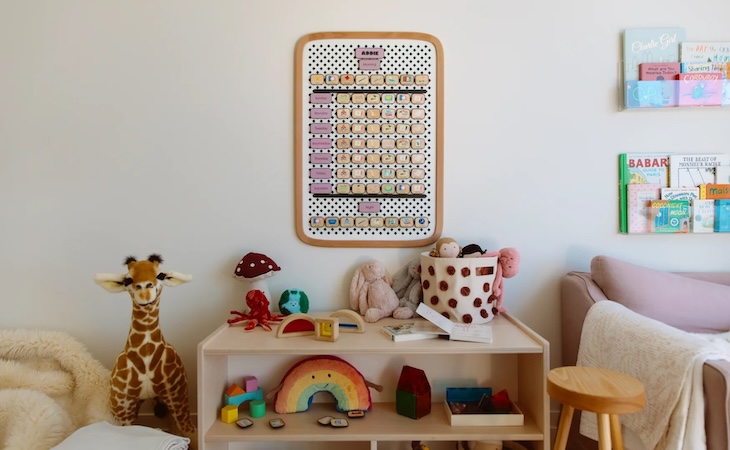If you’re a dog owner, then you’ve probably noticed your furry friend likes to sleep—a lot!
Because we love sleep—and we love dogs—we’ve put together this guide to canine sleep, including how many hours you can expect dogs to sleep at every stage of life.
Plus, we’re sharing advice from a vet on how to tell if your dog is sleeping too little or too much, along with tips to make sure your dog gets the just-right amount of sleep.
Dogs and sleep
According to the American Kennel Club, dogs typically spend 50% of their time sleeping, 30% of their time lounging around, and the remaining 20% being active.
But really, just how much do dogs sleep? Each dog is different, and their individual sleep requirement largely depends on a few factors like age, breed, and environment.
Large dogs like St. Bernards generally need more shut-eye than small dogs like chihuahuas. Work dogs like police canines and farm dogs, meanwhile, get less sleep because they are more active than your typical family dog.
When it comes to your dog’s age, here’s how much sleep you can expect them to get.
How many hours do puppies sleep?
Puppies are incredibly irresistible and rambunctious. They’re also big-time snoozers. Experts say puppies can sleep anywhere between 12 and 20 hours per day. It makes sense since their little bodies are still developing and using tons of energy to explore and play.
How many hours do adult dogs sleep?
Adult dogs need less sleep than puppies and typically clock about 12 to 14 hours of shut-eye per day. Depending on the breed, puppies usually shift into adult sleep habits at around 10 months to a year, according to Jennifer Coates, doctor of veterinary medicine and member of the advisory board at Pup Life Today.
How many hours do senior dogs sleep?
Senior dogs need more sleep than the average adult dog—about 16 to 18 hours daily. Dogs usually enter their senior phase at 10 to 12 years for large breed dogs and 5 to 6 years for small breed dogs.
Related: Why does my dog sleep like that?
When to worry about your dog’s sleep habits
“The most important thing is to get a feel for what’s normal for your dog,” says Coates. “So if you have a dog that is a go, go, go kind of dog and doesn’t sleep very much, but it’s been like that for years, that’s probably normal for that dog.”
The opposite is also true. Coates advises that if your dog is the relaxed type that lounges around all day but then becomes restless and doesn’t sleep through the night, it could be cause for concern.
In older dogs, restlessness could be a sign of Canine Cognitive Dysfunction, which Coates compares to dementia in humans. “One of the classic signs of canine cognitive dysfunction is changes in sleep patterns,” says Coates.
Also, if your dog sleeps excessively, diabetes, canine depression, and hypothyroidism could be to blame. Make an appointment with your veterinarian, who can make a proper diagnosis and establish a treatment procedure. (Learn about whether melatonin for dogs is safe.)
Related: The case for sleeping with dogs
Making sleep time easier for your pup
Like you, your furry friend should have a regular bedtime, especially during the first few weeks of their life, if possible. It’s important to remember that puppies can’t go most of the night without relieving themselves.
Puppies and dogs are more likely to sleep longer through the night with fewer potty breaks if engaged both physically and mentally during the day.
Crate training is an effective way to form a sleep schedule. “I’m a big proponent of crate training,” says Coates.
Make your pup’s crate a comforting space with soft bedding and an article of your clothing to encourage feelings of safety and calm. After a time, the crate can be replaced by a regular doggy bed.
Not sure where to find the right doggy bed? No worries. We got you covered with our guide. And if you find your dog is disrupting your own ability to catch Z’s, here are some easy ways to prevent your pet from ruining your sleep.
FAQs
Is it normal for dogs to sleep all day?
The average adult dog should sleep between 12 to 14 hours a day—so if your dog is sleeping excessively or all day, you should make an appointment with your veterinarian to ensure diabetes, canine depression, hypothyroidism, or other health issues aren’t to blame.
Should you wake a sleeping dog?
Like humans, you shouldn’t wake a sleeping dog. This can cause them to wake up feeling disoriented, startled, and still tired, which can make them aggressive toward you or anyone else around.





